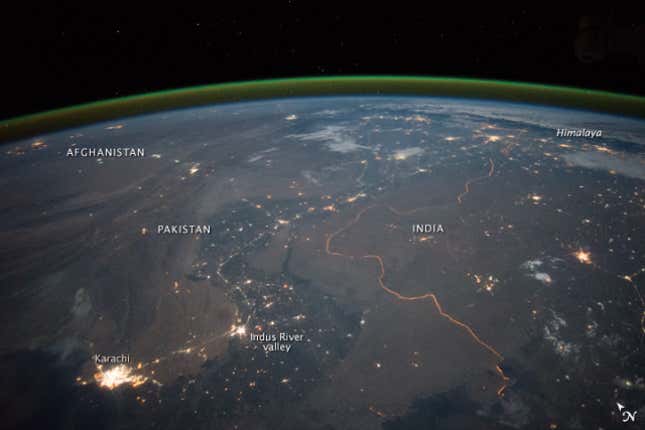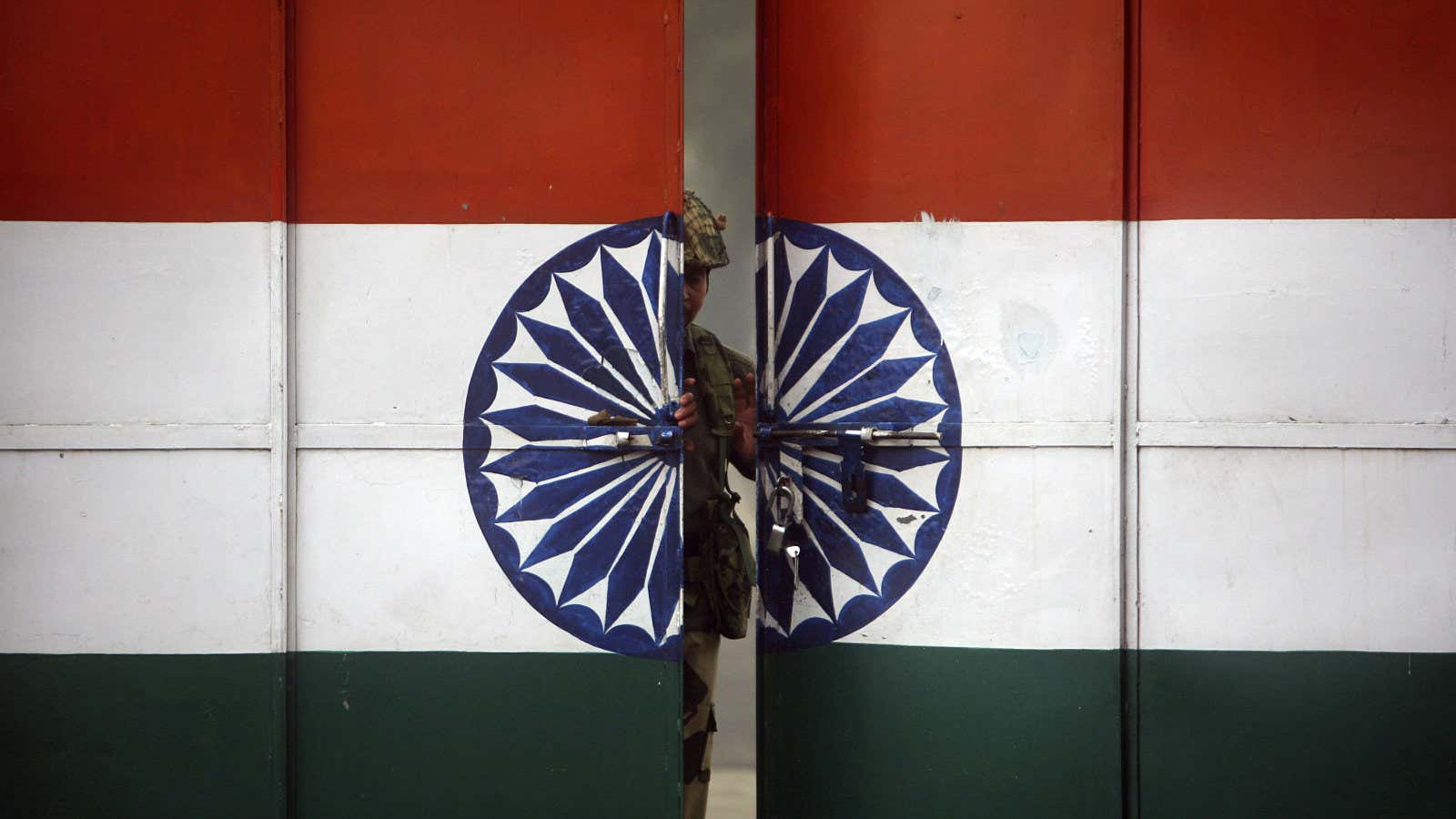India’s borders remain porous.
On Sept. 18, suspected terrorists of Pakistani origin attacked an Indian army camp in Jammu and Kashmir (J&K), resulting in the death of 18 soldiers. That came just a few months after a similar attack on an airbase in Pathankot, Punjab, in January.
After the Pathankot incident, prime minister Narendra Modi’s government set up a committee to analyse India’s border security. Here is its timely advice: increase investments in everything, from ground troops and modern technology to basic fencing.
India’s border with Pakistan is already one of the world’s most militarised ones, guarded by thousands of soldiers on both sides. It stretches across a massive 3,323 km, traversing the states of J&K, Punjab, Rajasthan, and Gujarat over territories that experience varying and punishing weather conditions. Nearly 2,000 km of this line is floodlit, making it visible even from space.

But there are still some gaping holes in the infrastructure that make it easier for terrorists to infiltrate, the committee, headed by former union home secretary Madhukar Gupta, has noted, according to the Hindustan Times newspaper. One of its big concerns: the 1,958 km of basic fencing along the border badly needs maintenance.
The existing anti-infiltration obstacle system used along the border is quite advanced with its combination of border fencing, electric live wires, sirens, and sensors, besides the thousands of troops on patrol. But it becomes difficult to maintain in extreme weather conditions like heavy snowfall, landslides, or during the monsoon floods.
The committee recommended that the government focus particularly on the vulnerable sections of the border, notably in J&K, and rebuild and seal fencing properly.
It suggested investing in a “grid-based” system where ground troops would be given access to advanced technology like satellites for surveillance, besides help from intelligence agencies and police. The committee also wants the government to invest more in underground sensors and advanced radars to help track infiltration and enable quick response.
There is also some advice from an expert in the field: Israel. Israeli ambassador to India David Carmon has noted that there’s a lot India can learn from the Middle Eastern country’s experience. For its borders, Israel uses extremely advanced technology, including sensors that collect information via unmanned aerial vehicles. Israeli experts have offered to share this kind of expertise, adapting it to India’s local needs.
